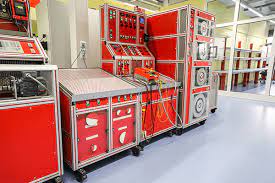In a world where energy efficiency and conservation are paramount, technological advancements have paved the way for Frequenzumrichter Danfoss SEW Lenze Siemens reparieren lassen more sustainable and cost-effective solutions. Among these innovations, inverter technology stands as a significant milestone in the realm of power electronics. From residential homes to industrial applications, inverters have revolutionized the way electricity is utilized, providing unparalleled efficiency, reliability, and versatility.
Understanding Inverter Technology
At its core, an inverter is an electrical device that converts direct current (DC) into alternating current (AC). This fundamental conversion is vital as many devices and electrical systems operate on AC power, while sources like solar panels or batteries produce DC power. Inverter technology facilitates seamless integration between these disparate power sources, enabling a more flexible and efficient energy supply.
The traditional role of inverters has evolved dramatically over the years. Initially used primarily in industrial settings, their applications have expanded significantly, permeating diverse sectors including residential, commercial, automotive, and renewable energy.
Challenges and Future Prospects
Despite their numerous advantages, challenges persist in the realm of inverter technology. These include the need for continued research to enhance efficiency, reduce costs, and develop more compact and durable designs.
Looking ahead, the future of inverter technology appears promising. Ongoing advancements in semiconductor technology, control algorithms, and material sciences aim to further improve efficiency, reliability, and cost-effectiveness. Moreover, the increasing focus on renewable energy sources will continue to drive innovation in inverter technology, playing a vital role in transitioning towards a more sustainable energy landscape.
